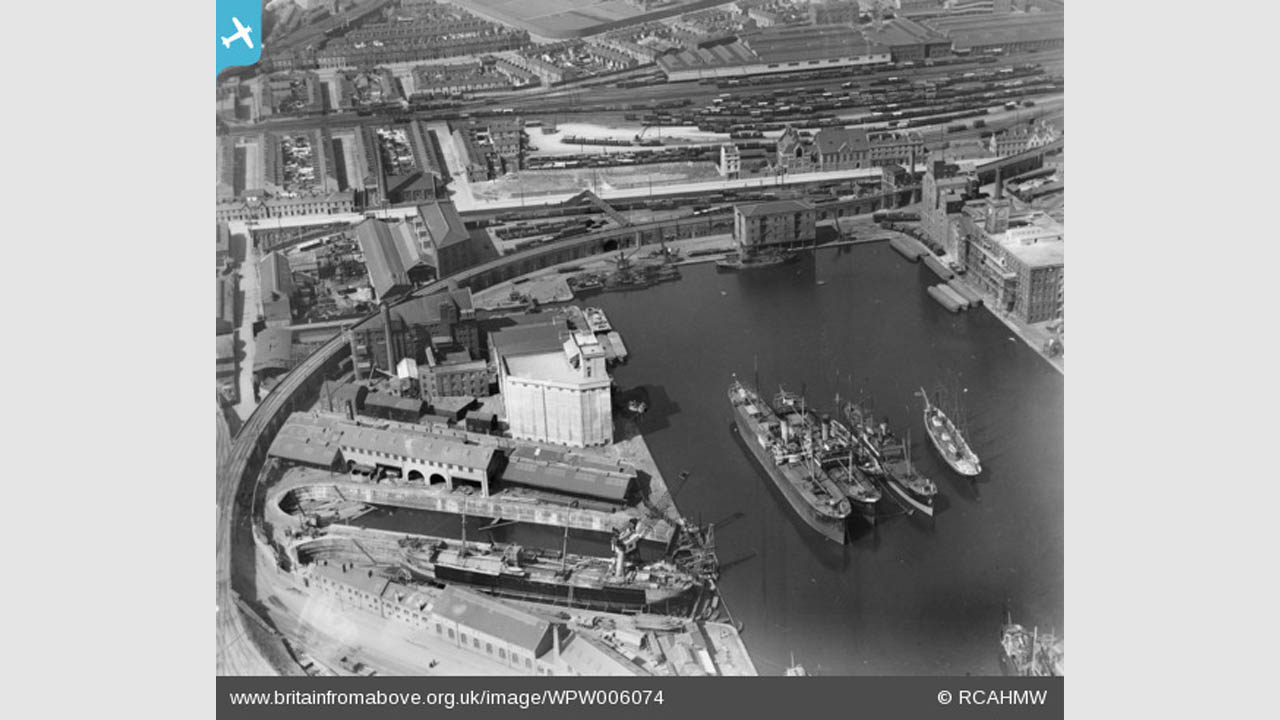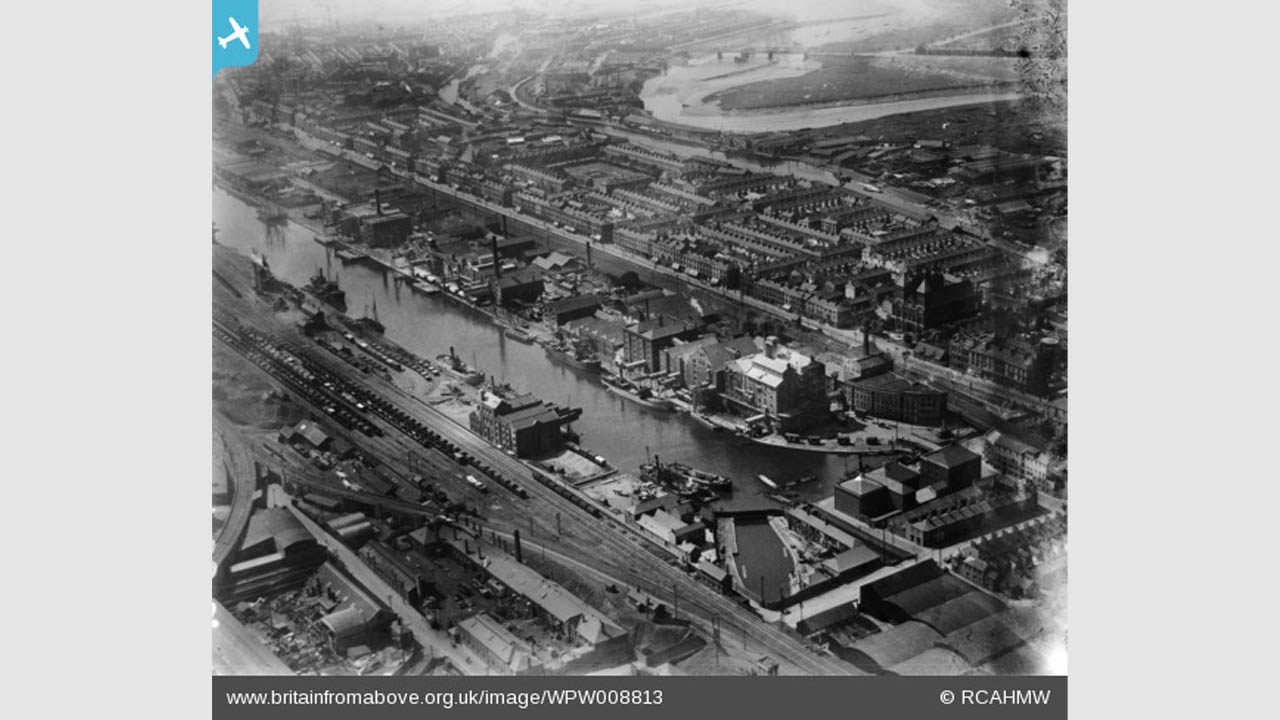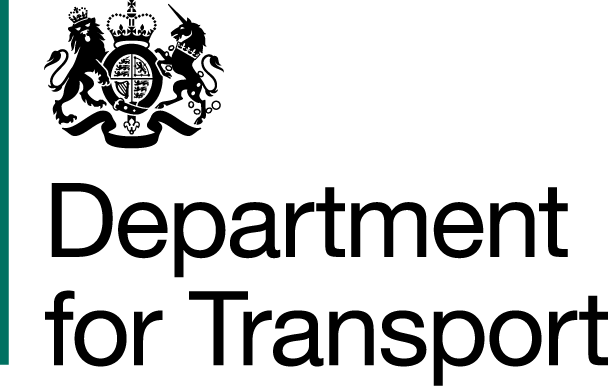Cardiff’s First World War railway dock women
As part of Railway 200 - and our wider heritage work - we are working with academic partners to look at differing aspects of railway history and heritage across Wales and borders. In the first of our series and to mark Women’s History Month and in a nod back to St David’s Day on the 1st March 2025, Dr Mike Esbester from the Railway Work, Life and Death project, explores railway dock women in Cardiff during the First World War below.
“Women have long worked on Welsh railways. Very often that work has been forgotten. Sometimes it shows through in the most unexpected places. As March is Women’s History Month, it’s a helpful reminder to us to look for those forgotten Welsh railwaywomen.
Take Eline Arnold. Born in Bristol in 1888, she was living with her husband Percy in Merthyr Tydfil by 1911. By 1921 Eline was occupied in ‘home duties’ - no doubt taking care of her and Percy’s daughter and looking after their house. So far, no railway. It might be entirely possible to miss her brief - but significant - railway role.
For during the First World War and immediately after, Eline Arnold was employed by the Cardiff Railway Company. She was one of many women who joined railway service in a period of national emergency.
Plenty of women worked on the UK’s railways before the First World War. Very often they were in roles that were deemed ‘appropriate’ for women - office cleaners, for example, serving staff in railway-owned hotels, seamstresses in railway workshops, or gate keepers, opening and closing level crossing gates.
The First World War increased opportunities for women in a range of workplaces - including on the railways. Some became engine cleaners, for example on the Barry Railway; Elizabeth Trevelyan was one of several women employed at Tondu, becoming a signalwoman.
Very often we only know about railwaywomen’s service because, unfortunately, whilst at work they had an accident, which left a record for us. Those records are valuable, as they allow us to see railwaywomen’s work. That’s some of what’s being done by the Railway Work, Life and Death project, a collaboration between the University of Portsmouth, the National Railway Museum and the Modern Records Centre at the University of Warwick.
In the project, dedicated teams of volunteers are transcribing the accident records, making them freely available to everyone, and using them to look at railway work and employees before 1939. That collaboration is extending to include Transport for Wales, to look at the Welsh aspects of railway work and staff accidents in the past. This is part of TfW’s heritage work, during the Railway 200 year and on.
Eline Arnold was another surprising ‘find’ within the records the Railway Work, Life and Death project is using. She was one of several women who worked for the Cardiff Railway Company at Bute docks. No doubt she was replacing men who had joined the armed forces. It looks like she and the other women employees started work at the docks between July and November 1917. They were in manual roles, in particular loading and unloading wagons.
Eline’s first recorded accident was on 4 April 1918, when she fell out of a railway wagon whilst discharging ballast. She injured her back and was off work for six days. On 10 July 1918, she was pulling a lever when she strained her arm and side. She doesn’t appear to have left work though. And finally, on 11 September 1918, she fell whilst walking to some wagons she was going to discharge. She struck her head on something, but again, didn’t seem to go off work. So - three relatively minor incidents, but which capture a few of the challenges faced by dock workers and railway women and men.
Eline was a member of the National Union of Railwaymen from July 1917 until June 1919, when she probably left railway service. Whilst the First World War was an exceptional period, it’s useful in the ways it makes railwaywomen more easily visible to us - including through their accidents.
There’s an extended post about Eline Arnold and Welsh railwaywomen on the Cardiff Railway on the Railway Work, Life and Death project blog, here.”
Mike Esbester is Senior Lecturer in History, University of Portsmouth. He co-leads the Railway Work, Life and Death project, a collaboration between Portsmouth, the National Railway Museum and the Modern Records Centre at the University of Warwick. His research focuses on the history of railways, transport and mobility, and on the history of safety, risk and accident prevention.





